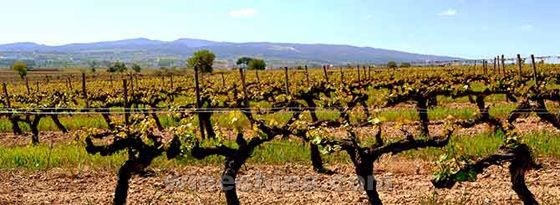Date£º
2014-03-13 10:57 Source£º
winesearcher Author:
Zara Tempest Coleman Translator:
The billions of euros poured into the reform of the European wine scene have failed to resolve the oversupply situation in Spain, a report released by Rabobank suggests.

Vineyards in Penedes, Spain
Despite being the largest recipient of E.U. subsidies and eradicating nearly 150,000 hectares (370,650 acres) of vineyards (more than France and Italy combined), Spain has seen an increase in wine production.
The 2008 European wine reform was introduced in a bid to reduce wine supply and improve competitiveness of European vineyards in the international market. A key goal of the legislation was to stabilize the supply and demand imbalance by assisting growers to eliminate vineyards.
However, the reform also sought to improve the efficiency of the remaining vineyards and this has proved a double-edged sword. The report explains that in Spain's Castilla-La-Mancha the average cost of production in the region has fallen by 40 percent per tonne of grapes thanks to restructuring but this has also led to a rise in the average yield per hectare.
According to Rabobank estimates, the net effect of eliminating some vineyards while restructuring others "will be an increase in annual production of nearly 1 million liters' in Castilla-La-Mancha alone.
"On the surface, it appears that the E.U. programme has spent a great deal of money but has failed to achieve its goal in Spain. This is partially true as Spain continues to carry excess production capacity and many growers struggle with a lack of profitability as a result," Rabobank added.
Indeed, in 2013 Spain produced a bumper crop of 40 million hectoliters, compared to 36m hl in 2009. While France and Italy both produced more wine than Spain last year, they have reduced their production volumes since 2009, and it is now thought that Spain will overtake its counterparts to become the world¡¯s largest wine producer.
The report suggests that Spain could reduce its oversupply issues by ¡°increasing production of international varietals or by building consumer demand for traditional varietals in foreign markets.¡°
While supply base is critical, the report suggests that to achieve long-term success, Spain must also focus on building strong brands in international markets through adopting a more consumer-driven marketing focus.